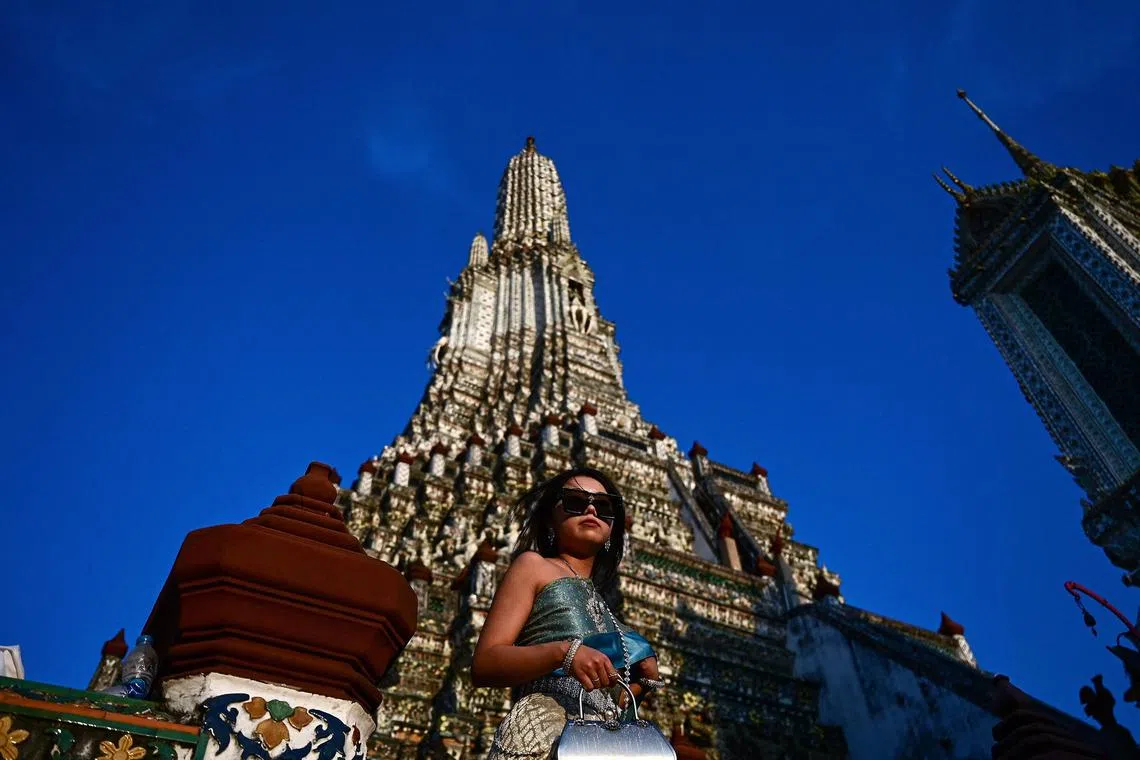Mega projects, tourism to propel Thailand’s growth this year, finance chief says
Sign up now: Get ST's newsletters delivered to your inbox

Foreign tourists are returning to Thailand in droves, with arrivals topping two million for a second straight month in January.
PHOTO: AFP
Follow topic:
BANGKOK – A slew of billion-dollar infrastructure projects and an upswing in tourism
Government approvals for three projects at a combined investment of about 524 billion baht (S$20 billion) will ensure capital spending remains on track, Mr Arkhom said in an interview on Monday in his office, citing a high-speed railway line connecting three airports, an expansion of an airport southeast of Bangkok and a deep seaport.
Private sector investment was on the mend too, with rising imports of machinery and equipment, he said.
The Finance Ministry is sticking to its forecast for a gross domestic product expansion of 3.8 per cent in 2023, even though a below-par performance last quarter needs to be factored in, Mr Arkhom said.
Firm domestic demand and an improving services sector will also keep the recovery on track, he said.
Thailand posted the slowest growth rate among South-east Asia’s major economies in 2022 and now faces the risk of a delay in Parliament passing the 3.35 trillion baht budget for next fiscal year, with elections tentatively slated for May.
Any delay in the formation of government and passage of the budget – akin to the last election year in 2019 when growth halved to 2.1 per cent from a year earlier – may slow major state spending and hurt the recovery.
“We are quite comfortable in our growth path despite many people saying that we have the lowest rate in Asean,” Mr Arkhom said in Bangkok.
“Tourism has been helping (the) Thai economy a lot, particularly in the short-term recovery. We expect more improvement in the tourism sector after the Chinese reopening.”
Foreign tourists are returning to Thailand in droves, with arrivals topping two million for a second straight month in January.
The recovery is expected to gain speed with China,
While tourism will support private consumption, a slowdown in Thailand’s major trade partners is seen as a headwind, said Mr Arkhom.
A sustained expansionary fiscal policy and gradual normalisation in interest rates will ensure the recovery remains intact, he added.
The Bank of Thailand (BOT) has been one of the most dovish central banks in the region, increasing its benchmark rate by only 100 basis points since August.
BOT’s monetary policy committee (MPC) had said that a gradual and measured normalisation was needed to nurse the economic recovery.
The finance ministry and the central bank agree on the need for a coordinated response to ensure the economy recovers fully, Mr Arkhom said, adding “you wouldn’t see the MPC being aggressive in raising the rates”.
Headline inflation may ease to a range of 3 per cent to 4 per cent later in 2023 from a 14-year high of 7.86 per cent in August as global energy and commodity prices ease and amid continued government subsidy on electricity, cooking gas and diesel prices for targeted groups, Mr Arkhom said. Bloomberg

